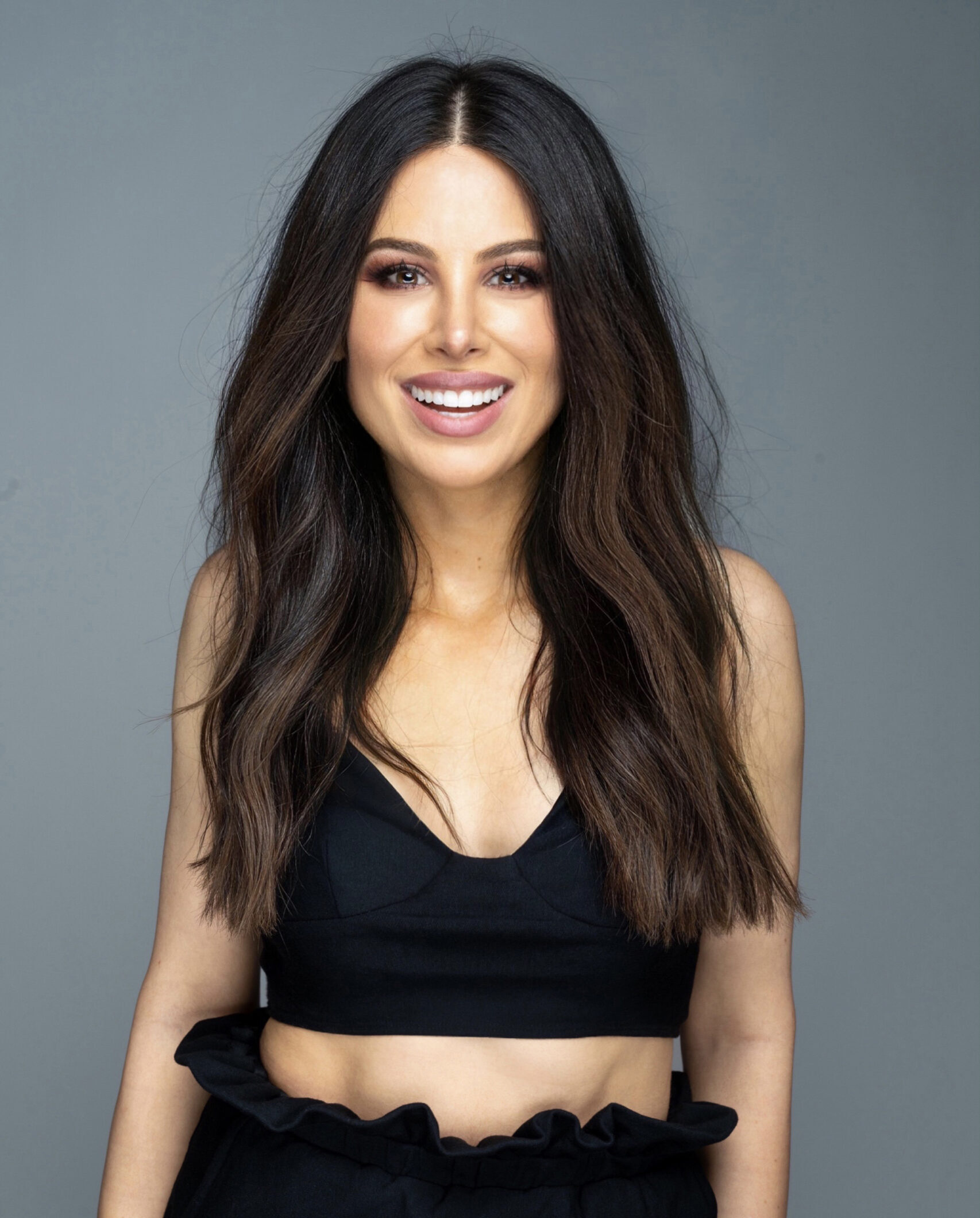Have you reached a point where your patterns and behavior have become so painfully clear, embarrassing, and destructive… you start to lose hope? And because you don’t know how to get out of the cycle, you accept that your intuition will never be something that you’ll have the self-esteem to actually befriend and act on. All you know how to do is prosecute your intuition down to nothing and turn a blind eye via self-blame. I know I’ve been there. But for most of my life, every time I thought I had reached the point of BFF status with my intuition, I’d somehow find myself in a vastly different situation with the same damn outcome: heartbreak, unnecessary drama, insecurity, jealousy, lies, blaming myself for everything, and being crazy-labeled. Years later, I found out that these symptoms of my relationships were all signs of codependency.
“Am I codependent?” I thought. I didn’t even know what codependency was. All I knew was that I was in pain. The kind of pain that is so overpowering, you become convinced that without a toxic partner to save you, you’ll never find a way out.
If the healing of your pain is completely dependent on the decisions, actions, and behaviors of other people, you completely disqualify yourself from being an active participant in your own healing (and life). By doing this, you communicate to the universe that you’re more comfortable being in a dependent relationship (with your triggers, the cynical audience in your own head, and other people) than you are addressing your codependent personality.
For me, the idea of overcoming codependency sounded so much better than actually getting better.
Getting better was too scary. I didn’t know where to even begin sorting myself out.
Denial and avoidance were so much easier.
And since the universe has a way of always bringing back to us what we put out, I just kept getting more and more of the same. At that point, I had abandoned myself for so long, my life had become nothing more than micromanaging the “please don’t abandon me,” of every relationship I had and every opportunity that ultimately, I sabotaged.
I was so thirsty for validation; so busy trying to secure acceptance, there was no room for genuine connection or meaning in my relationships – starting with the relationship I had with myself. And as long as you don’t know who the f*ck you are, you will always look to toxic people/bankrupt sources to tell you who are and what you’re worth.
This was my reality for over 20 years of my life. Wash, rinse and humiliatingly, repeat.
What is codependency?
Codependent relationships are always one-sided. They have the highest highs and the absolute lowest lows. Although these relationships can feel very intimate (because an “us against the world” mentality is needed for survival), they are the opposite of what true intimacy is all about.
The dictionary defines Codependency as “having excessive (and unhealthy) emotional reliance on a partner.” It’s when you sacrifice your own needs and mental health to serve theirs and feel responsible for their behavior. In your servitude, you live outside of yourself but are always able to quickly shift gears and make your partner’s behavior all about YOU; how you are somehow, never enough.
Codependency is where one (dysfunctional) person enables another (dysfunctional) person’s poor mental health, addiction, narcissism, immaturity, irresponsibility, gaslighting, sociopathy, avoidance, etc.
Signs of Codependency
Whether it’s a codependent marriage, friendship, romantic relationship or familial relationship, the key to knowing how to overcome codependency is in the ability to recognize these things within yourself.
All of this used to be me…
- The disease to please People pleasers are sitting ducks for codependency. You’d rather do what you think will garner the most validation/approval than follow your intuition. Codependents love listening to their hearts, libidos, heads… anything but their intuition.
- Needing vs. wanting When I was codependent, I didn’t feel like I had any value without someone in my life that needed me. This leads to the destructive (and incorrect) assumption that most who struggle with codependency live by: needing = wanting. Nothing could be further from the truth. We’re so needy ourselves, we start to assume that just because someone needs us, it must mean that they want us. There is a big difference. Why do we go for people that need us? As I’ve said before, it’s like taking a sh*tty insurance policy out on abandonment. As long as we’re with someone that needs us (and subsequently, uses/doormats us because we’re people pleasers), we convince ourselves that we’ll never be abandoned because, well, we’re NEEDED. This need/want confusion primes you for relationships with the emotionally unavailable, narcissistic, sociopathic, and empathetically bankrupt (toxic) species. When you confuse being needed with being wanted, you project your low self-esteem onto others, forgetting that it will always boomerang right back in your face.
- Like attracts like Who else would fall for, be blind to the red flags of, make excuses for, and continue in a relationship with a codependent other than another codependent? One person in the relationship is generally dependent on pleasing/providing, while the other is dependent on “being fed”/consuming. One is the ATM, the other is the cardholder. Both are dependent upon one another to complete the transaction – a transaction that is automated by un-dealt with trauma and void of any intimacy, genuine connection, or meaning. What are you left with when you have an unhealthy dependence on relationships? An abuse of power; two individuals who can’t stand on both emotional feet because they can’t be INDIVIDUALS. They’re just two junkies – hooked on production and consumption. Guess what? You’re better than that. Codependency is a strain of desperation that disallows healthy communication, implementing boundaries, and ever being able to trust yourself or your partner. Codependency is all about trying to save the day. Codependents want to protect and “shield” people from experiencing the emotional distress that they feel on an hourly basis. They love being an emotional Red Cross unit for victims. They also try to shield others from experiencing any consequences for their behavior because codependents feel immense guilt. And therein lies the inability to hold their partner accountable for their actions.
- Chaos and complication Instead of continuing to ask “Am I codependent?” ask yourself… Do I get caught up in (or create) unnecessary drama and chaos, so I don’t have to deal with the bigger problem (my inability to have an emotional life of my own, call my own shots and deal with my self lack of self-love)?”
- You’re an emotional cutter You truly believe that you know exactly what’s best for others and feel abandoned and rejected when they don’t take your advice. You do this because as long as you can control others, you won’t have to deal with the scariest endeavor of getting control over the one thing that is massively OUT of control: yourself. This is why so many people who suffer from codependency are super OCD. They need control over everyone and everything because they’re scared. They don’t know how to take control of themselves and their lives. They can never take their own advice.
- Fear of not being enough is the root of codependency. Acting from a place of fear makes it impossible for boundaries to be enforced and self-love to develop. Living in fear (which eventually, turns into shameful anger), and bottling it up until there’s an outburst, is indicative of codependency. Codependent individuals feel very isolated. Because of this, their default mode is pedestaling others while simultaneously, de-pedestaling themselves. They’re also extremely resentful of authority figures because these people embody everything they feel like they can never be.
How To Stop Being Codependent Now
- Take inventory (and fire accordingly) Take an inventory of the people in your life that need you vs. the people that want you. Remember – you are the C.E.O of Y.O.U. Make the decision to fire the individuals in your life that drain you. How do you fire them? Speak with your dignified actions and remain on your white horse. If you can’t think of any people in your life that want you, start wanting a relationship with yourself and work towards that. You’ll eventually start to attract people that genuinely want to get to know you (the real you – not the weak, people-pleasing ass-kisser that codependency turns you into).
- Set your own standards (instead of allowing others to set them for you). Wherever you set your standards is exactly where the universe will meet you. At what point is enough actually enough? Don’t ever be so desperate to “have somebody,” that you allow your standards to be negotiated down. Everyone needs to have limits. What are yours?
- Be aware of the mechanism Once you commit to overcoming codependency within yourself and your relationships, know that *it will* manifest elsewhere because it’s all you’ve known. This leads to your biggest problem: the codependent relationship that you have with your fears. If you’re codependent, fear needs you to exist and you need fear to have an existence. I spent the majority of my life acting from a place of fear. And as scary as taking the necessary action to have my own back was, I ended up meeting my soulmate. ME.
I realized that I was the only one who knew all of my secrets; the only one who had been there through everything.
I was the only one who knew every shred of the pain. And despite all of the humiliation, insecurity, blame, shame, and drama that I had both inflicted and endured over the years…
My heart was still beating.
And at that moment, I realized I had never given up on myself – even when I was convinced that I had. I was still here, right by my own side.
If that’s not the definition of a best friend and a soulmate, I’m not sure what is.
Once you recognize yourself as your own soulmate, you’ll stop being dependent on someone else to label you as theirs.
Written by: Natasha Adamo







